buddy scheme for medical non-compliance
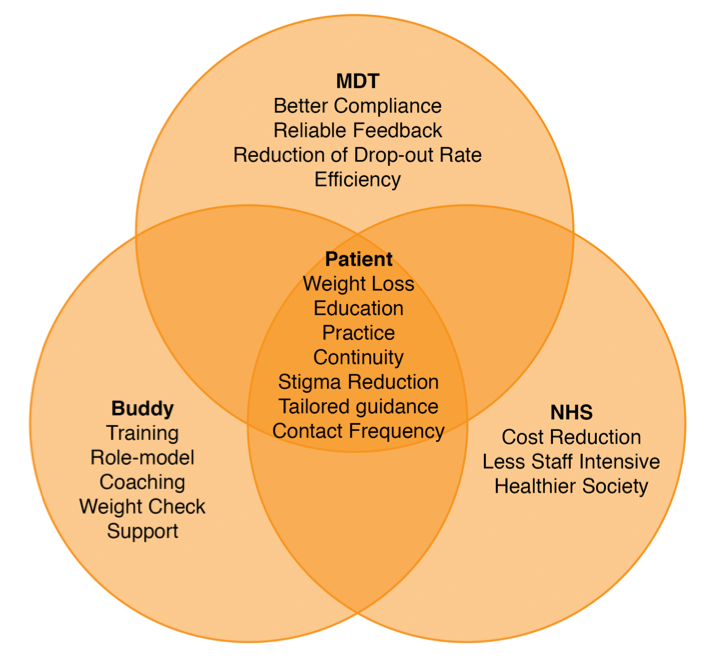
Benefits for the main stakeholders of proposed solution to non-compliance in the obesity sector.
Third year group project regarding medical non-compliance, as part of the Design-led Innovation and New Venture Creation module at University.
In addition to medical systems, the problem of non-compliance requires careful consideration of technical, socio-cultural and economic factors. The problem requires a change in social attitude as much as it requires technical innovation. Indeed it requires a combination of solutions including technical, behavioural, educational and social support interventions that are required in order to put in place a framework or system that can successfully address the needs of all stakeholders, from investors to patients. The proposed system, the “Buddy Scheme”, is a support system for both obese and morbidly obese patients to start and maintain weight loss.
My main responsibility for the project was to conduct interviews with patients in order to realise the root cause of the problem, and how to solve it. Also, as editor of the group, in addition to writing part of the final report, I was in charge of the graphics, and collating and editing the report.
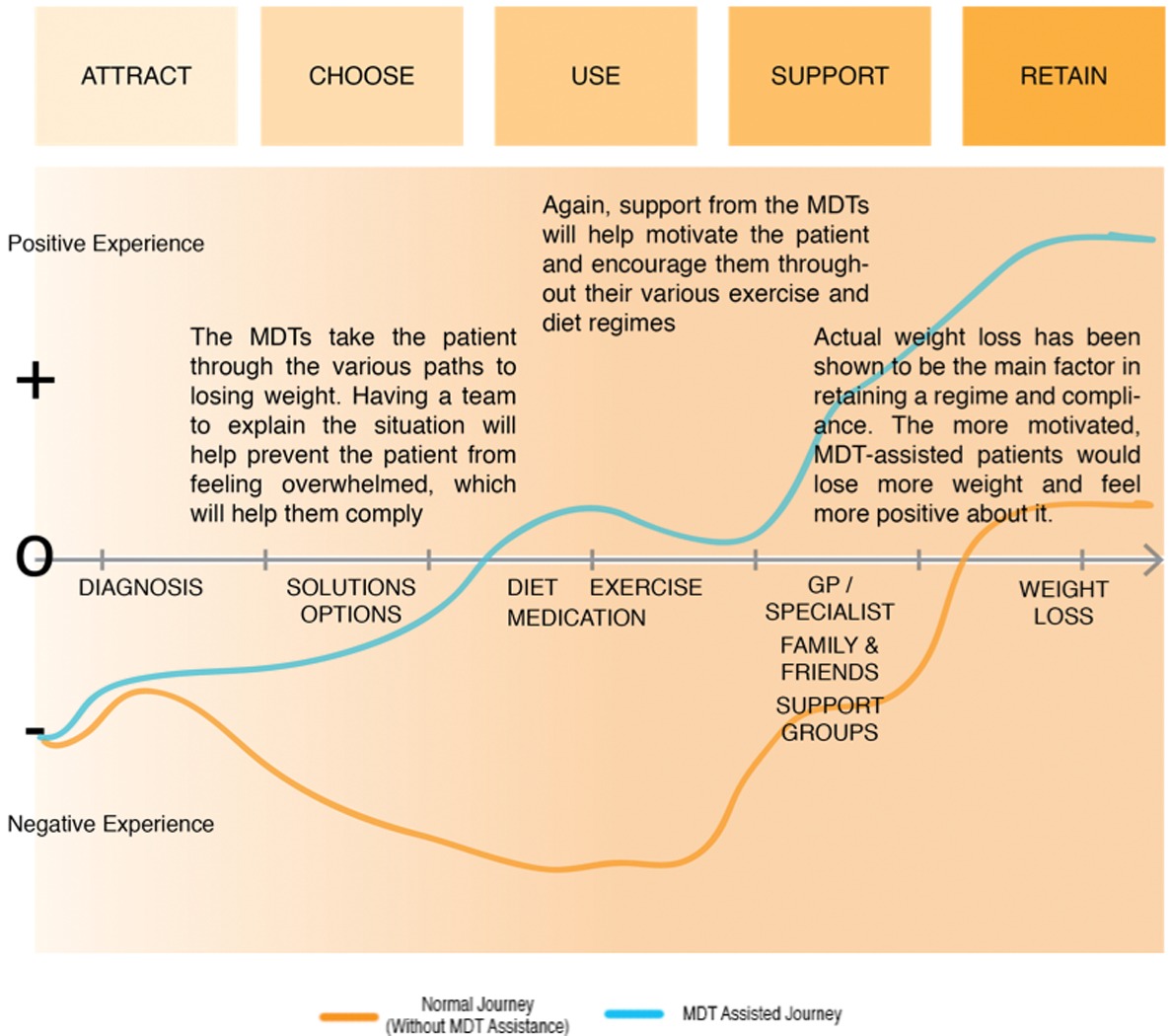
Patient journey map illustrating the difference between a normal and Multidisciplinary Team (MDT) assisted journey.
The Buddy Scheme is to be introduced as a collaboration with Multi-disciplinary Teams (MDTs) - specialised teams of psychologists dieticians, physiotherapists and General Practitioners who work closely with obese people. The solution obtained positive reactions from both users and MDTs alike,
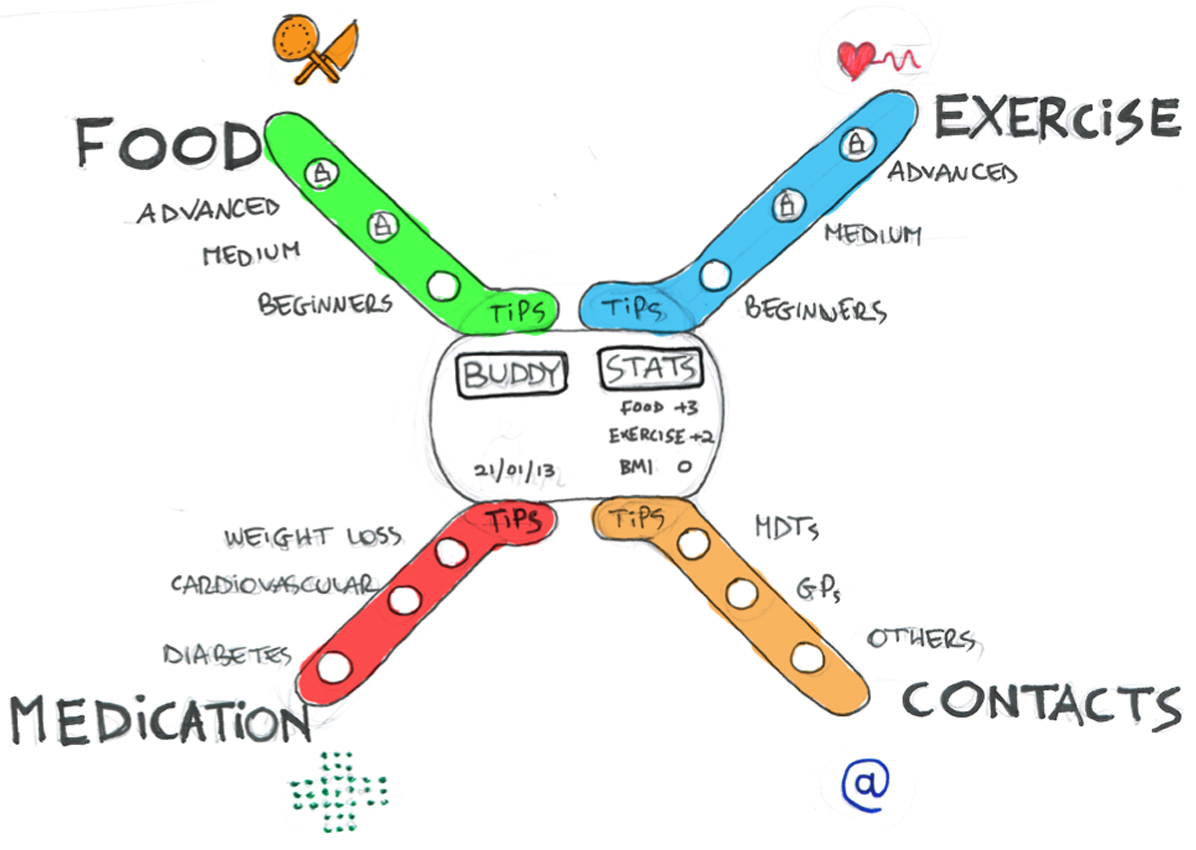
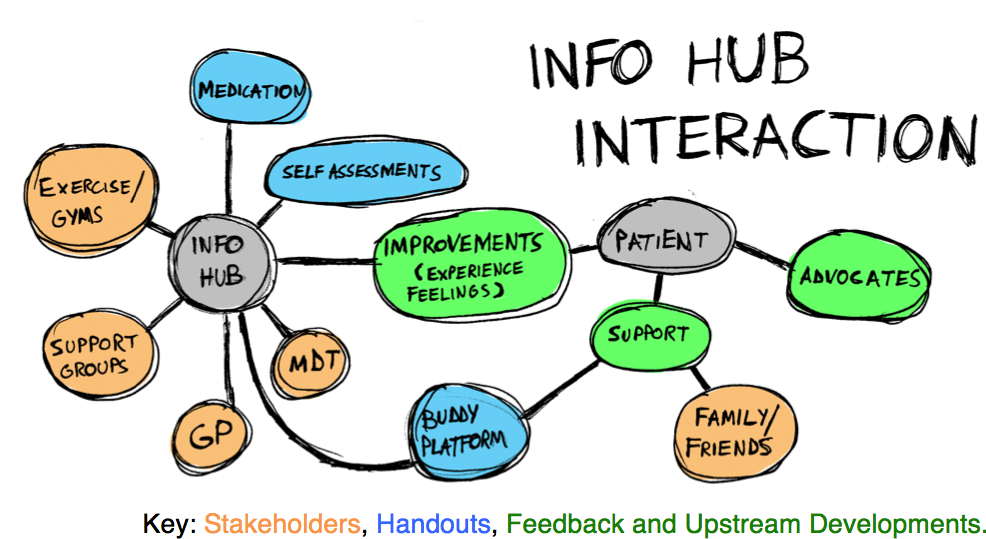
Info Hub concepts as a platform for interaction between patients, families, healthcare professionals and 'buddies.' It was conceived as an addition to the online communication systems and intranets that are already in place in hospitals and with MDTs in the NHS.
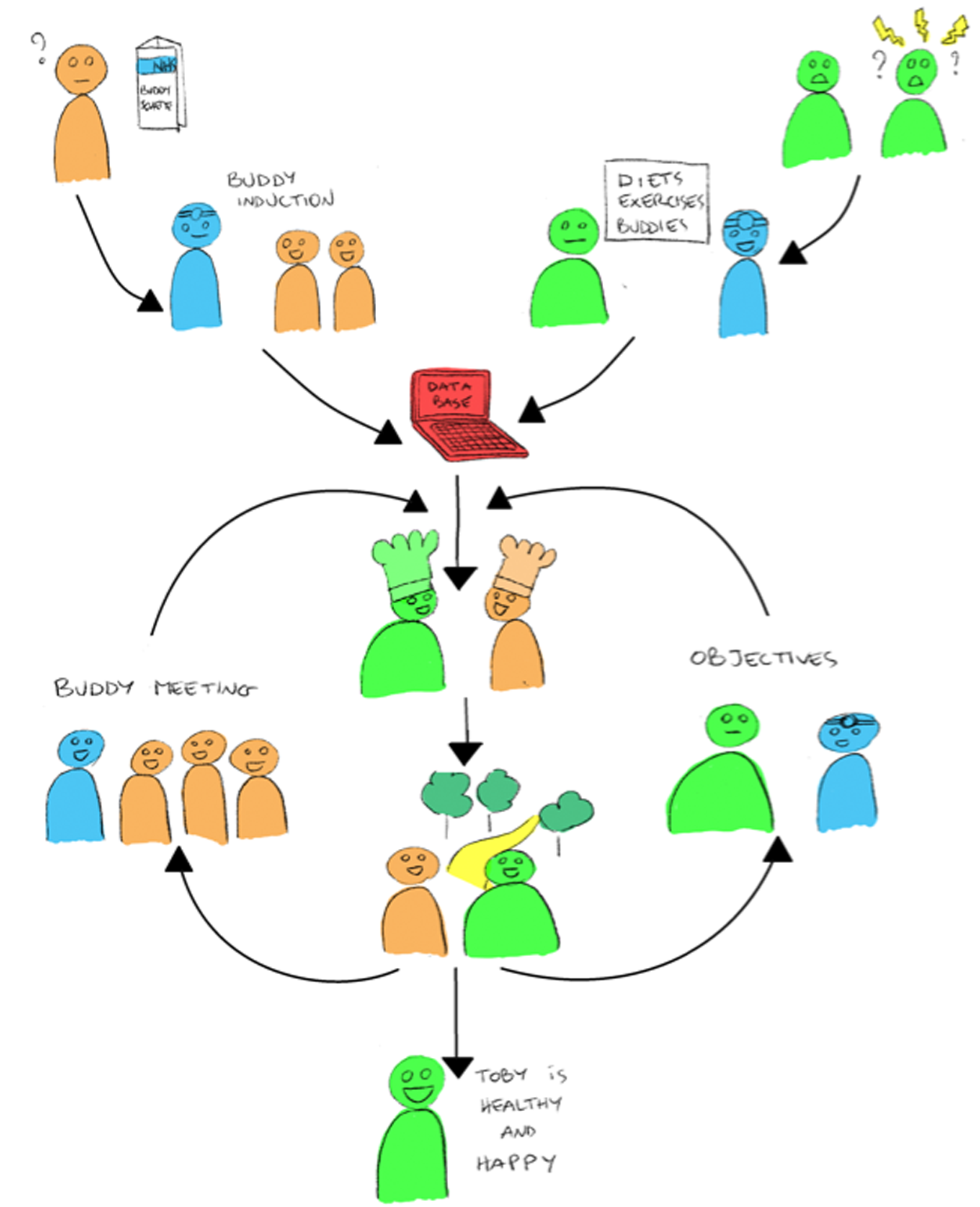
Patient (green) pathway in the system, interacting with MDTs (blue) and Buddies (orange) [drawn by John Bertolaso]
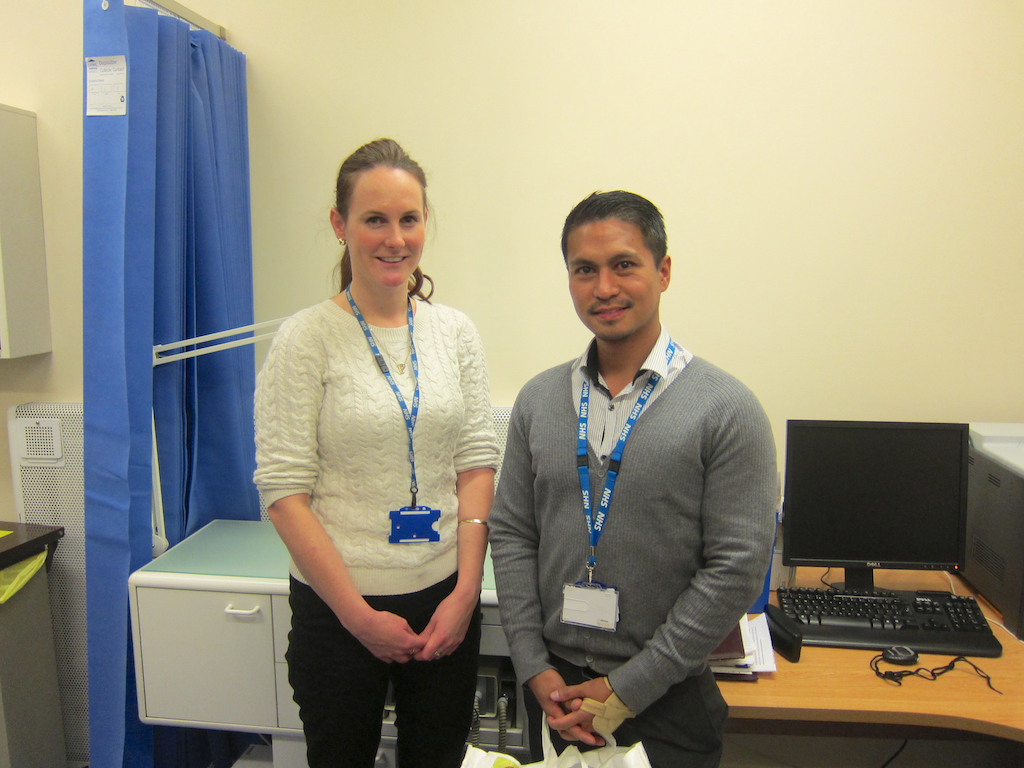
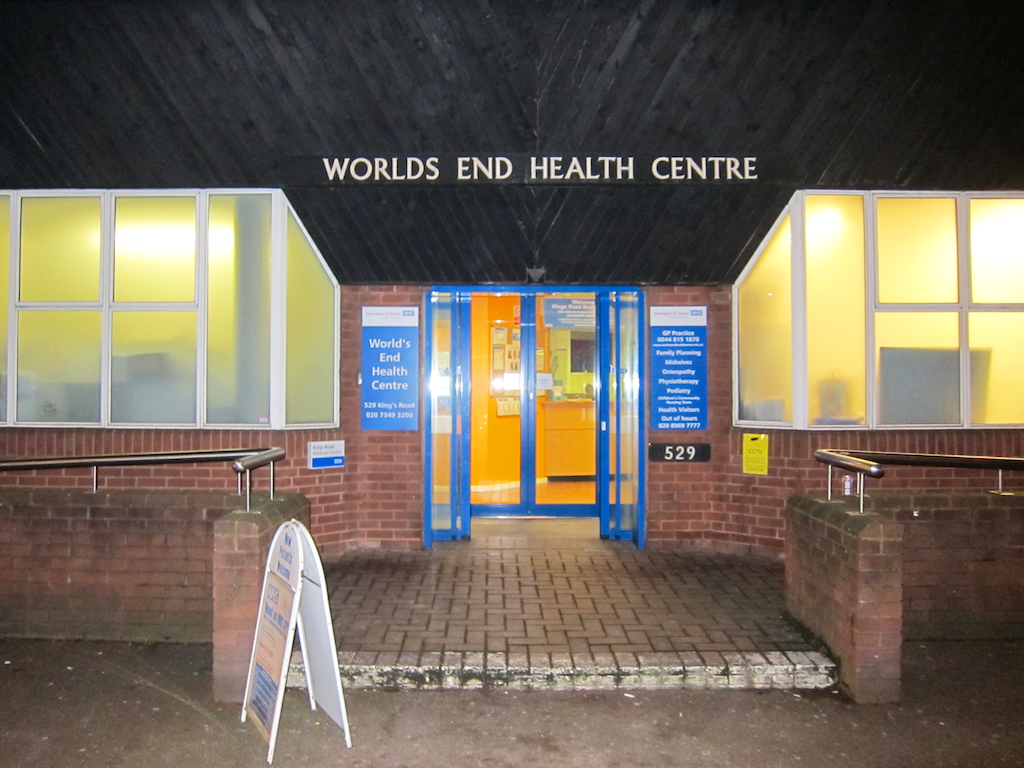
Lucy, MDT dietician (left), and Troy, MDT physiotherapist (right) at the Worlds End Health Centre.

Example of patient interview (identity has been kept anonymous).
The system, along with the Info Hub, provides support for obese patients in much more than just a clinical and medical context; it provides the social interaction and the back-up needed to foster important socio-cultural changes. It physically encourages the patient to adopt an attitude, approach, and ability to combat obesity and remain compliant during the medical treatment.